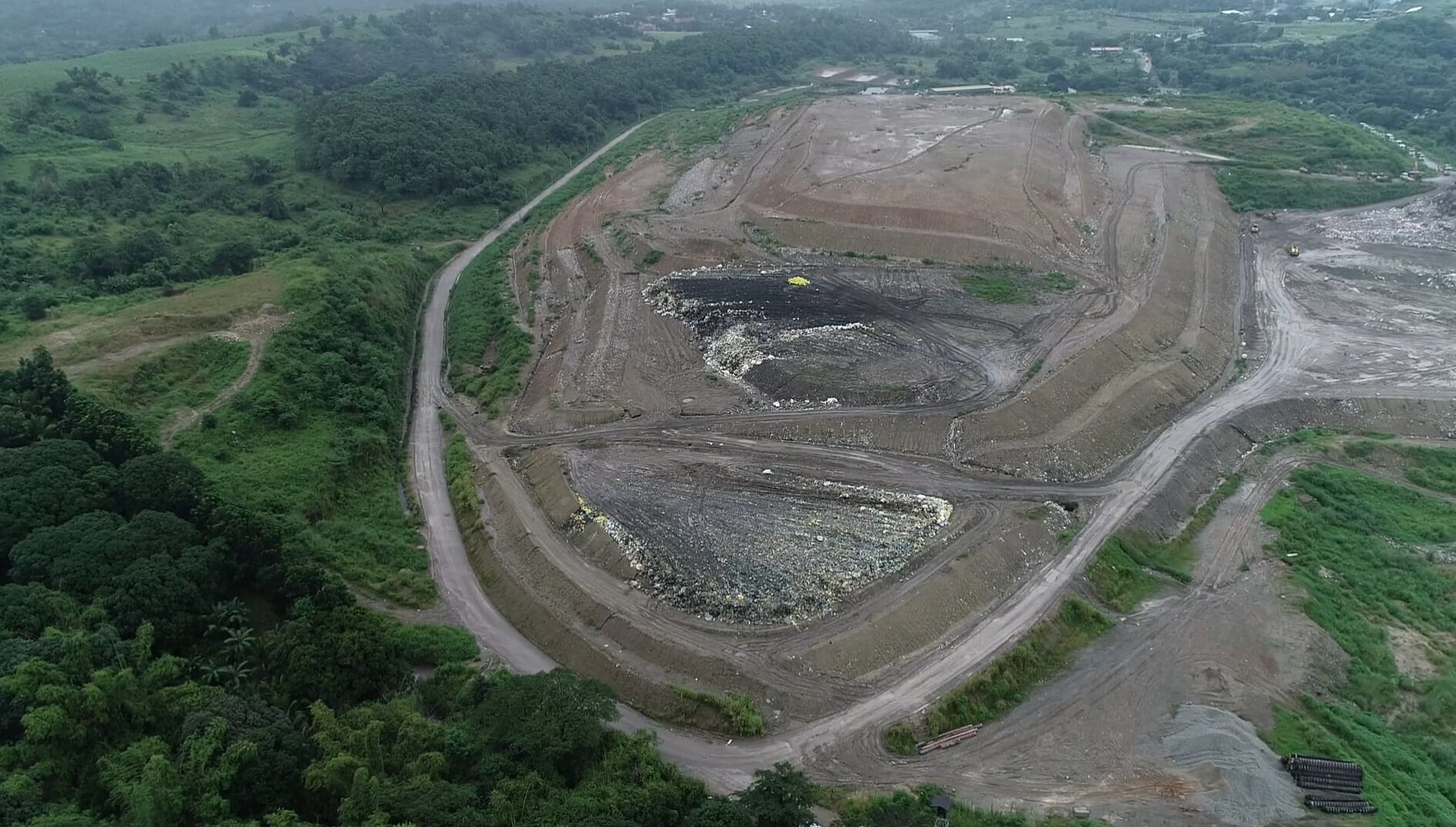
VITAL DUMP A drone shot on Oct. 14 shows the sanitary landfill of the Metro Clark Waste Management Corporation’s 100-hectare waste management facility at Sitio Kalangitan in Capas, Tarlac. The facility serves businesses and local governments in central and north Luzon. —CONTRIBUTED PHOTO
ANGELES CITY—A local court has dismissed the civil case filed by the Metro Clark Waste Management Corp. (MCWMC) against the Clark Development Corp. (CDC) and the Bases Conversion and Development Authority (BCDA) in connection with the expiration of a 25-year contract for the management and operation of the 100-hectare Kalangitan sanitary landfill in Capas, Tarlac.
In a 30-page ruling on Oct. 21, the Regional Trial Court Branch 114 rejected MCWMC’s request for reformation of instrument, specific performance and damages, which primarily sought to extend its contract for services for another 25 years. The contract expired on Oct. 6.
The landfill serves businesses and local governments in central and north Luzon.
Judge Rodrigo del Rosario’s order concluded that MCWMC failed to provide sufficient grounds for its claims, that its request for reformation or amendment of the contract’s terms had already expired, and that the company had engaged in forum shopping.
The Inquirer reached out to MCWMC through its executive vice president, Victoria Gaetos, but the company had yet to issue an official response.
According to the court, the reformation of terms requires a mutual understanding between the parties involved.
It found that MCWMC’s assertion of an automatic renewal clause was insufficient to meet the legal standards for reformation.
The court said that reformation requires a demonstration of a mutual mistake and specific allegations detailing the cause of the discrepancy between the parties’ true intentions and the written terms, which MCWMC had failed to provide.
While acknowledging the existence of a contract for services between the Ingenieuburo Birkhann+Nolte GmbH and Heers & Brockstedt GmbH & Co. Kg as represented by BN Consultants Philippines Inc. (MCWMC’s predecessor), the court noted that MCWMC did not adequately articulate the specific reasons for the alleged misrepresentation.
‘Equitable remedy’
The court clarified that reformation is an “equitable remedy that allows the court to correct or modify the terms of a written contract when it does not accurately reflect the true intentions of the parties, often due to mutual mistake, fraud or clerical error.”
It asserted that such remedies should only be sought when no other legal options are available. Since MCWMC could obtain a fair remedy through existing legal avenues, there was no need for contract reformation.
The court also noted that MCWMC had previously filed a separate action against CDC and BCDA in Capas RTC and had been granted a temporary restraining order preventing the defendants from asserting possession over the landfill property. This established that MCWMC had access to an adequate legal remedy, making the current case unnecessary.
The court also ruled that MCWMC’s claims for specific performance and damages against CDC and BCDA lacked merit, particularly its demand for P101 million in damages and legal fees.
The court supported CDC and BCDA’s argument that MCWMC’s action for reformation should have been filed within 10 years of the contract’s signing on Oct. 6, 1999. As the action had expired by Oct. 6, 2009, the court dismissed the claims.